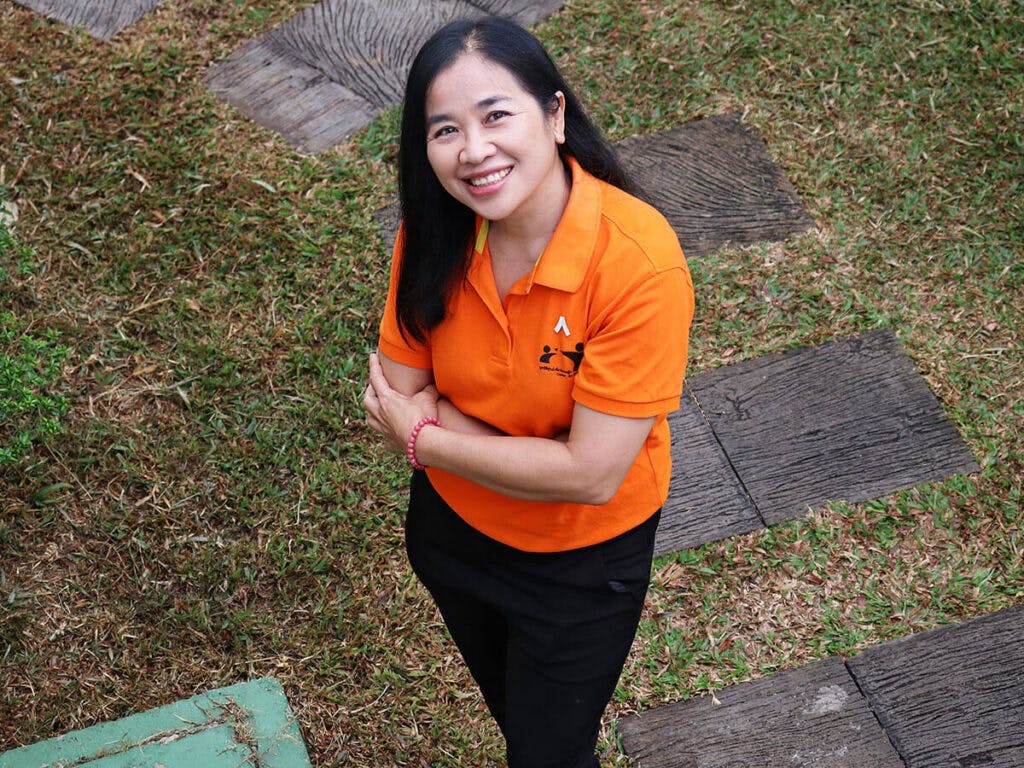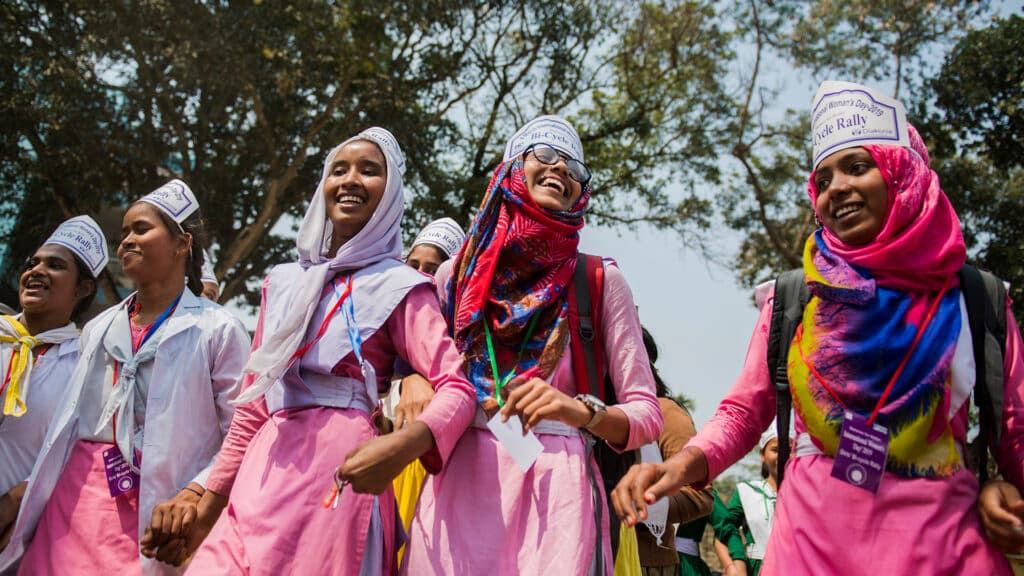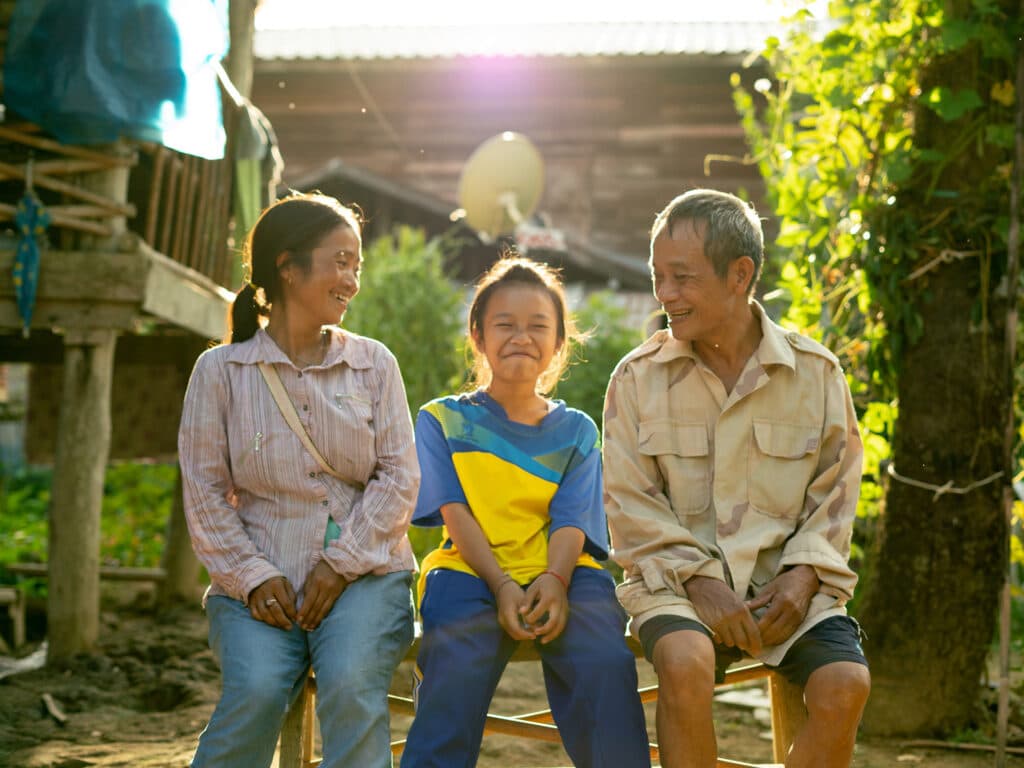
The Forest as Home for Thailand’s Indigenous People
In northern Thailand, the Karen community of Ban Huai Rai and Huai Ngu is fighting to protect their cultural heritage and secure land rights. With support from Diakonia through the Northern Development Foundation (NDF), they have achieved critical milestones, including the designation of Cultural Protection Zones, blending traditional wisdom with modern advocacy to safeguard their way of life and the forests they call home.
A New Chapter for Indigenous Rights
As the first light of dawn painted the lush hills of Chiang Rai province in northern Thailand, Chaiyapol stood at the edge of his village, gazing at the land his ancestors had called home for generations. At 57, he embodied the living history of the Karen people—a community deeply rooted in the forest, their identity inseparable from the rich, green landscape that surrounded them.

In 2022, a significant change arrived for Chaiyapol's community in Ban Huai Rai and Huai Ngu. The area was officially declared a pilot Cultural Protection Zone under a Cabinet resolution—a milestone aimed at safeguarding the cultural rights and traditional way of life of Indigenous groups. This recognition represented not only legal rights but also an acknowledgment of the Karen's harmonious relationship with the forest, guided by spiritual beliefs and generations of ecological wisdom.
This journey was paved by collaborative efforts. The Northern Development Foundation (NDF), supported by Diakonia, worked closely with the community and relevant agencies. Through capacity-building initiatives and interactive consultations, they empowered local stakeholders to advocate for land security. Dialogues between local government agencies and community leaders resulted in groundbreaking agreements about land and natural resource management.

The designation of Ban Huai Rai and Huai Ngu as a Cultural Protection Zone closely aligns with the principles of the draft Indigenous bill currently under parliamentary review. This proposed legislation aims to recognise Indigenous communities' rights to land, culture, and resource management. If passed, it would establish a national legal framework that extends beyond land rights, reinforcing Indigenous identity, preserving their heritage, and protecting their traditions from harmful external development.

Living in Harmony is a Way of Life
For the Karen, the forest is far more than a physical space—it is a living, breathing entity with its own spirit. Kamwan, one of the villagers, demonstrated this philosophy through her daily morning walk.


Her basket was filled with produce grown through rotational farming, a traditional method that allows the land to recover while ensuring continuous food security."This is how our land provides for us," she explained, her hands gently caressing a basket of freshly harvested plants.
"The forest gives us everything we need if we respect it," she said.

Noi Nuhae, the community's spiritual leader, articulated this profound connection with Karen traditional wisdom:

“My parents taught me that wherever we are, we must care for that place. We drink water, so we must care for the water source. We live with the forest, so we must protect the forest. We eat fish, so we must preserve the stream. We believe the land has a spirit. When we protect nature, nature will protect us.”
Noi Nuhae, Spiritual leader of Ban Huay Rai and Huay Ngu
Challenges and Resilience
The path has not been without obstacles. For many years, Indigenous peoples have faced violations of their rights and a lack of protection for their way of life. Additionally, market-driven agricultural practices have threatened their livelihoods. Commercial crops and monocultural farming models risk replacing the delicate ecological balance that Indigenous communities like the Karen have maintained for centuries.
"When we lose the land, we lose not only our livelihoods but our connection to who we are," Noi warned. "We must protect this land because if we don't, the forest will disappear. Businessmen can turn this land into corn or cassava fields, destroying the ecosystem."


While government policies aim to balance development and conservation, some measures have inadvertently impacted traditional ways of life. Restrictions on forest access and competing land-use priorities create significant challenges for Indigenous communities striving to sustain their livelihoods. Noi reflected deeply on these challenges, recounting past struggles to maintain his community's traditions and connection to the land.
"Many years ago, there were issues where this area might have been taken by the state for use as a national park," he recalled. "But with the support from NDF, we were able to push for changes that allowed us to retain control of this land."

A Future Rooted in Tradition
Despite many challenges, hope flourishes, especially among the young Karen in the community. They have become a powerful force, using digital tools and traditional wisdom to preserve their heritage. They map their territories, gather critical data, and create media that showcases their harmonious relationship with the forest.
"This place has become a space where we preserve our unique traditions and culture," Noi reflected. "Our efforts continue, and we must keep them alive."

By fostering partnerships and engaging in constructive dialogue with various stakeholders, villagers at Ban Huai Rai and Huai Ngu aim to build a future where their cultural and spiritual connection to the land is not only preserved but celebrated as part of Thailand's diverse and rich heritage.


As of December 2024, 23 Cultural Protection Zones have been officially established, marking a significant step forward in recognising and safeguarding the rights and traditional lands of Indigenous communities.
About the Northern Development Foundation (NDF)
The Northern Development Foundation (NDF) is a Thai non-governmental organisation committed to promoting sustainable development, human rights, and environmental conservation in northern Thailand. NDF focuses on empowering marginalised communities, particularly indigenous groups, to secure land rights, preserve cultural heritage, and sustainably manage natural resources.






